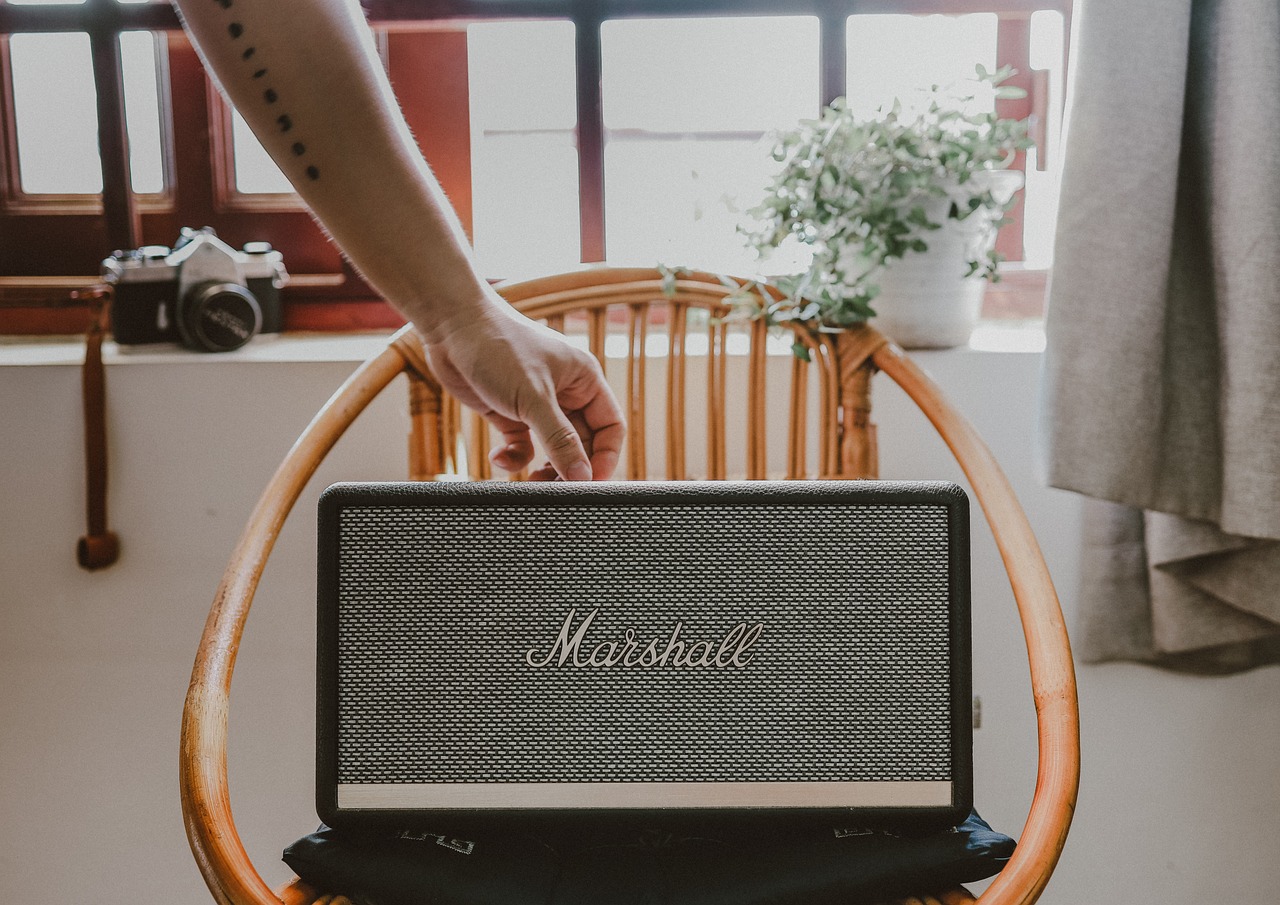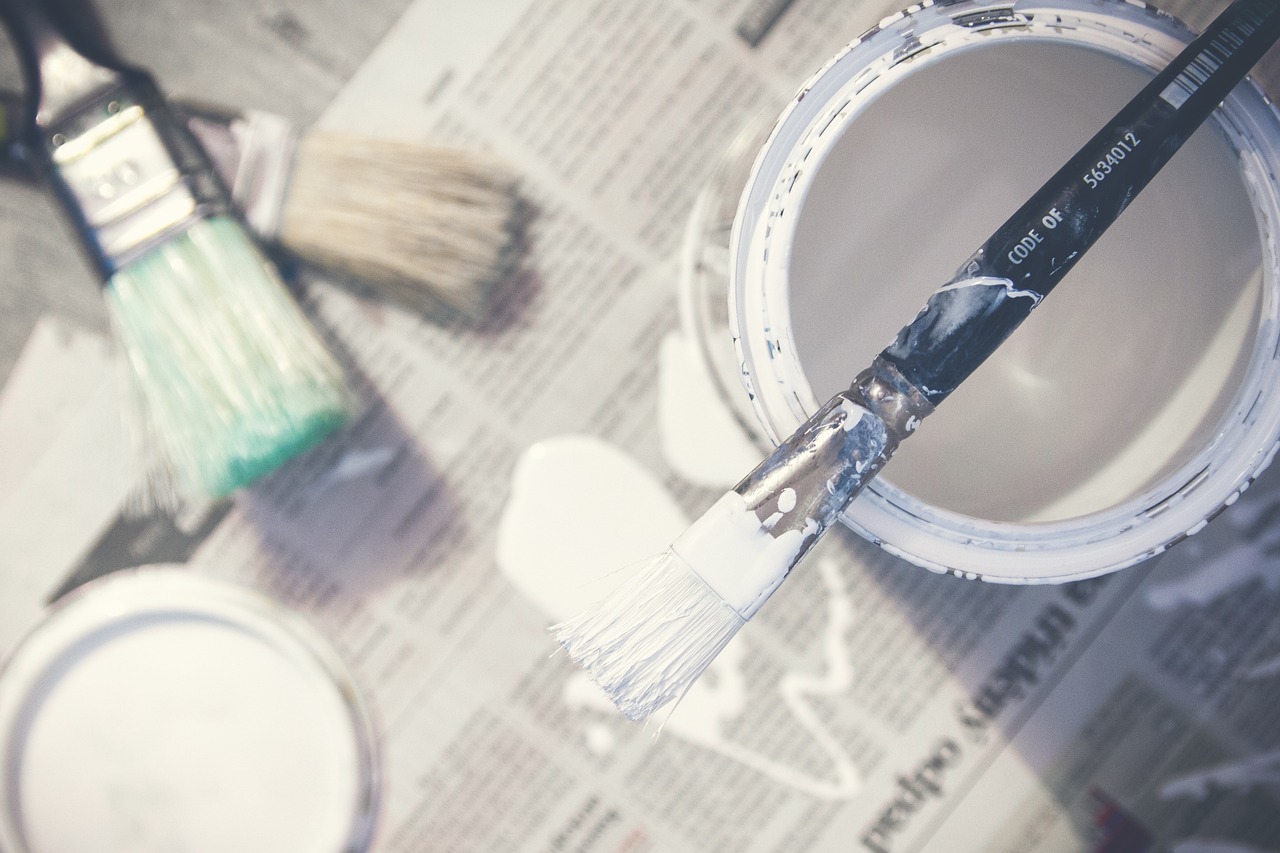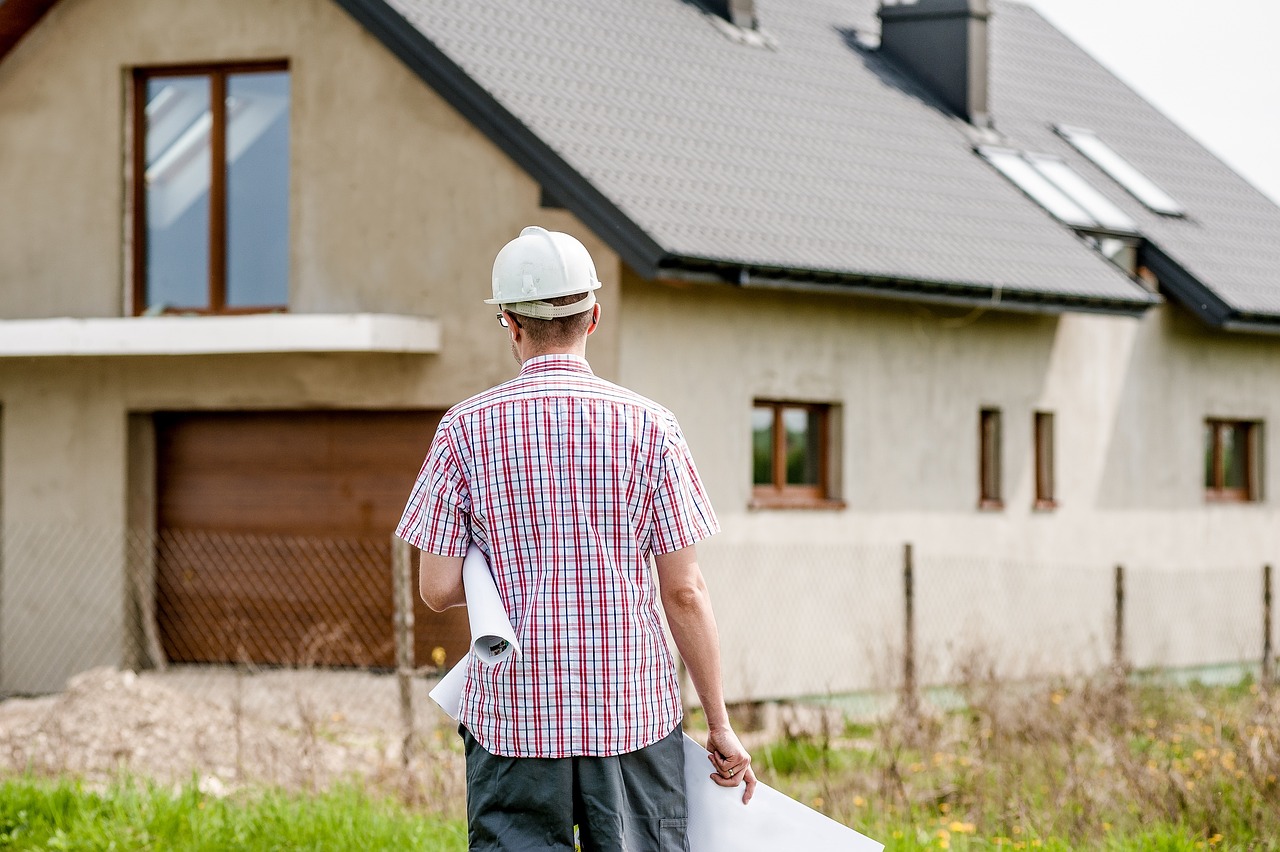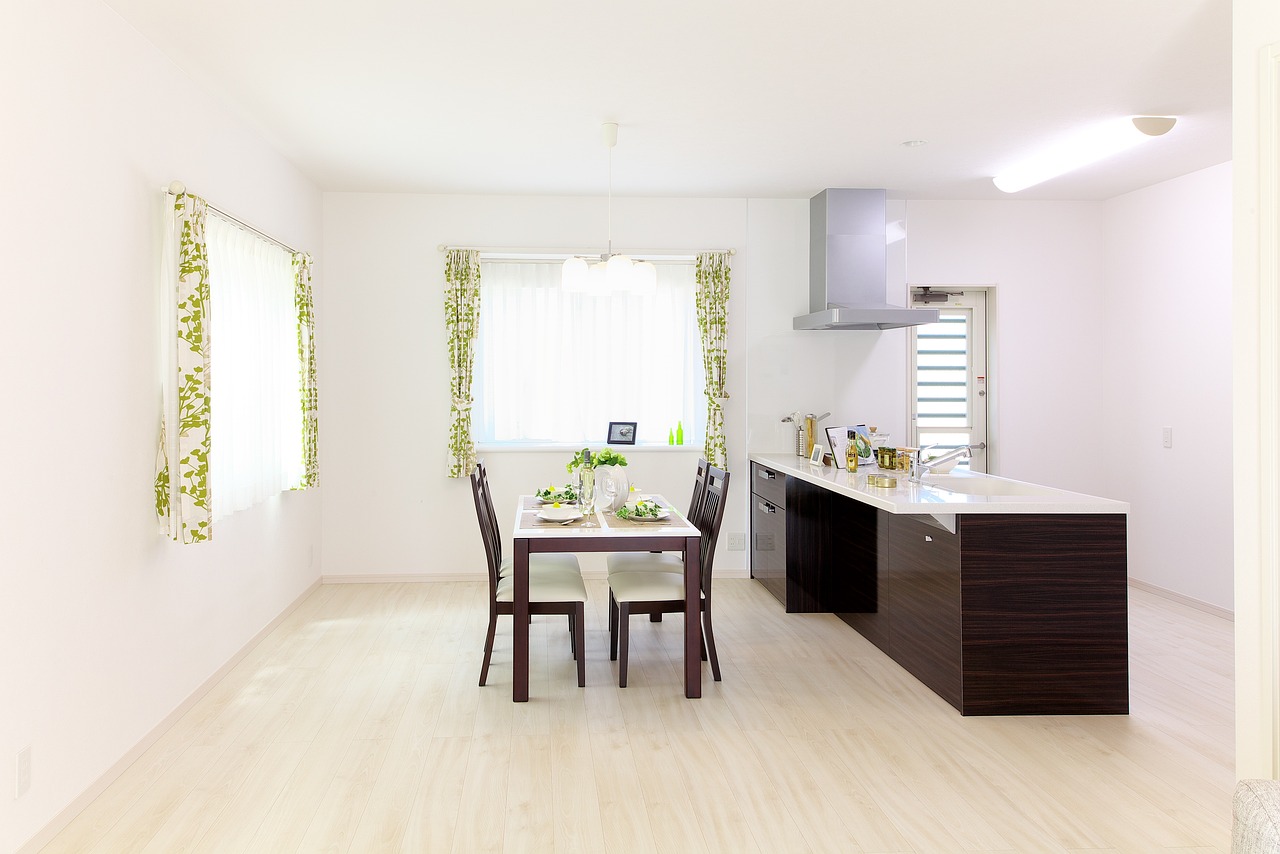The Value of a Home Inspection for Safety
When it comes to buying or maintaining a home, the importance of a home inspection cannot be overstated. Imagine stepping into your dream home only to discover that it harbors hidden dangers lurking beneath the surface. A home inspection acts as your personal detective, uncovering the secrets of the property and ensuring your safety and peace of mind. In this article, we'll explore the significance of home inspections, particularly their role in identifying potential hazards and preventing unforeseen issues that can arise in residential properties.
A home inspection is a thorough evaluation of a property's condition, designed to identify any potential safety hazards. Think of it as a health check-up for your home. Just as you wouldn't skip a visit to the doctor, you shouldn't overlook the necessity of a home inspection. It provides invaluable insights into the integrity of your investment, allowing buyers and homeowners alike to make informed decisions. This process not only highlights existing problems but also helps to foresee future concerns that could arise, ensuring that you are well-prepared for what lies ahead.
The benefits of home inspections are numerous and can significantly impact your experience as a homeowner or buyer. For starters, they offer peace of mind. Knowing that your home has been thoroughly evaluated allows you to rest easy, confident that your living environment is safe. Additionally, home inspections provide negotiation leverage for sellers. If an inspector uncovers issues, sellers can address them before listing or adjust their asking price accordingly. Furthermore, identifying costly repairs early can save you a bundle in the long run.
One of the most crucial aspects of home inspections is the identification of safety hazards. These can range from faulty wiring to hidden mold or significant structural issues. Recognizing these risks is essential for preventing accidents and ensuring a safer home for everyone involved. For example, a simple electrical issue can escalate into a major fire hazard if left unchecked. By addressing these concerns early on, homeowners can protect their loved ones and their investment.
Inspecting the electrical system is vital. Outdated or improperly installed wiring can pose significant fire hazards. A thorough evaluation ensures compliance with safety standards and reduces risks. An inspector will look for signs of wear and tear, check the grounding system, and ensure that all outlets are functioning correctly. Remember, a small issue today can turn into a big problem tomorrow if not addressed promptly.
Assessing the roof and structural components of a home is equally essential. Leaks or weaknesses in these areas can lead to more severe issues down the road, such as water damage or even structural failure. By ensuring these elements are sound, you contribute to the overall safety of your living environment. A well-maintained roof protects not only the house but also the health and safety of its occupants.
Investing in a home inspection can lead to long-term cost savings. By uncovering issues early, you can address problems proactively, preventing expensive repairs in the future. For instance, fixing a small leak now is far less costly than dealing with extensive water damage later. Additionally, a well-maintained property enhances its value, making it a wise investment for the future.
Selecting a qualified home inspector is crucial for a comprehensive evaluation. You wouldn’t trust just anyone to perform surgery, right? The same principle applies here. Researching credentials and reading reviews ensures that the inspector has the expertise to identify potential safety concerns effectively. A good inspector will not only have the technical knowledge but also the experience to spot issues that may not be immediately obvious.
Understanding the necessary credentials for home inspectors can help buyers make informed choices. Certifications and licenses indicate that the inspector has met industry standards and possesses the required knowledge. Look for inspectors who are members of reputable organizations, as this often signifies a commitment to ongoing education and professional development.
Reviews and testimonials from previous clients provide insight into an inspector's reliability and thoroughness. Positive feedback can guide homeowners in selecting the right professional for their inspection needs. Don't hesitate to ask for references or check online platforms where clients share their experiences. A reliable inspector will have a track record of satisfied customers.
- What is the average cost of a home inspection? The cost can vary widely, typically ranging from $300 to $500, depending on the size and location of the property.
- How long does a home inspection take? Most inspections take about 2 to 3 hours, but larger homes may require more time.
- Can I attend the home inspection? Yes, it is highly recommended that you attend the inspection to ask questions and gain a better understanding of the property’s condition.
- What happens if issues are found during the inspection? You can use the findings to negotiate repairs or a price reduction with the seller.

Understanding Home Inspections
Home inspections are not just a formality; they are a critical step in the home buying and selling process. Think of a home inspection as a health check-up for your property. Just like you wouldn’t buy a car without knowing its condition, you shouldn’t invest in a home without a thorough evaluation of its integrity. During a home inspection, a qualified professional examines the property's various systems and structures, ensuring everything is functioning properly and safely. This process helps to identify potential issues that could lead to costly repairs or safety hazards down the line.
When you consider buying a home, it’s easy to get swept away by the excitement of finding the perfect place. However, without a home inspection, you might be overlooking serious problems lurking beneath the surface. Imagine discovering a leaky roof or faulty plumbing after you've already moved in! A home inspection provides peace of mind, allowing you to make informed decisions about your investment. It’s not just about uncovering issues; it’s about understanding the overall condition of the property and ensuring that it meets safety standards.
During the inspection, various aspects of the home are evaluated, including:
- Structural integrity: This includes checking the foundation, walls, and roof for any signs of damage or wear.
- Electrical systems: Inspectors will assess the wiring and electrical panels to ensure they comply with safety standards.
- Plumbing: A thorough examination of the plumbing system can reveal leaks, water pressure issues, and the condition of pipes.
- HVAC systems: Heating, ventilation, and air conditioning systems are checked for efficiency and safety.
- Exterior elements: This includes the roof, gutters, siding, and any outdoor structures that may affect the home’s safety.
Each of these components plays a significant role in the overall safety and functionality of the home. By identifying any deficiencies early on, buyers can negotiate repairs or price adjustments with sellers, or even walk away from a deal if the issues are too severe. In essence, a home inspection acts as a safety net, catching potential problems before they become overwhelming disasters.
Moreover, home inspections are beneficial not only for buyers but also for sellers. By having a pre-listing inspection, sellers can address any issues before putting their home on the market. This proactive approach can lead to a smoother transaction and potentially increase the home’s value. It’s a win-win situation that fosters trust between both parties.
In summary, understanding home inspections is crucial for anyone involved in the real estate market. They provide a detailed overview of a property's condition, highlight safety concerns, and ultimately protect your investment. So, whether you’re buying or selling, make sure a home inspection is at the top of your checklist!
Q: How long does a home inspection take?
A: Typically, a home inspection takes about 2 to 4 hours, depending on the size and condition of the property.
Q: Do I need to be present during the inspection?
A: While it’s not required, it’s highly recommended that you attend the inspection to ask questions and gain a better understanding of the property.
Q: What happens if the inspection reveals problems?
A: If issues are found, you can negotiate repairs with the seller, request a reduction in the sale price, or, in some cases, decide to walk away from the deal.
Q: How much does a home inspection cost?
A: The cost of a home inspection can vary based on location and property size, but it typically ranges from $300 to $500.

Benefits of Home Inspections
When it comes to buying or selling a home, the importance of a home inspection cannot be overstated. Think of it as a health check-up for your property; just like you wouldn’t skip a doctor’s appointment, you shouldn't overlook this vital step in the real estate process. A home inspection serves as a comprehensive evaluation of your property, and its benefits extend far beyond just identifying problems. It provides peace of mind for buyers, negotiation leverage for sellers, and ultimately contributes to a safer living environment. Let’s break down some of these benefits in detail.
One of the most significant advantages of a home inspection is the peace of mind it offers to potential buyers. Imagine investing your hard-earned money into a property only to discover hidden issues after moving in. A thorough inspection can uncover problems like plumbing leaks, structural damage, or pest infestations before they become your headaches. This not only helps buyers feel secure in their investment but also allows them to make informed decisions. They can either negotiate repairs with the seller or walk away from a deal that poses too much risk.
For sellers, a home inspection can be an invaluable tool for negotiation. By proactively addressing issues identified in the inspection report, sellers can enhance their property's appeal and justify their asking price. This transparency can lead to a smoother transaction process. Buyers appreciate honesty, and when a seller provides a clean bill of health for their home, it builds trust. In fact, homes that have undergone recent inspections often sell faster and at better prices.
Another critical benefit is the identification of costly repairs. A home inspection can pinpoint areas that may require immediate attention, allowing homeowners to prioritize their maintenance efforts. For instance, if the inspection reveals that the roof is nearing the end of its lifespan, homeowners can budget for a replacement before it becomes an emergency. This proactive approach not only saves money in the long run but also prevents the stress of unexpected repairs.
Moreover, a home inspection can enhance the overall safety of the living environment. Safety hazards such as faulty wiring, mold, or structural issues are often lurking in the shadows, waiting to cause trouble. By identifying these risks early on, homeowners can take the necessary steps to mitigate them. For example, if an electrical system is found to be outdated, homeowners can upgrade it to meet current safety standards, significantly reducing the risk of fire hazards.
To summarize, the benefits of home inspections are manifold:
- Peace of Mind: Knowing the condition of the property helps buyers feel secure.
- Negotiation Leverage: Sellers can address issues and enhance their appeal.
- Cost Savings: Early identification of repairs can prevent costly emergencies.
- Safety Assurance: Inspections help identify and mitigate safety hazards.
In conclusion, investing in a home inspection is not just a procedural step; it’s a crucial part of the home buying and selling process that can save you time, money, and stress. Whether you are a buyer looking for a safe haven or a seller wanting to maximize your investment, a home inspection is an essential tool that provides clarity and confidence in your real estate journey.
Q: How long does a home inspection take?
A typical home inspection can last anywhere from 2 to 4 hours, depending on the size and condition of the property.
Q: What should I do if the inspection reveals issues?
Discuss the findings with your real estate agent. You can negotiate repairs with the seller or adjust your offer based on the inspection results.
Q: Are home inspections mandatory?
No, home inspections are not legally required, but they are highly recommended for informed decision-making.
Q: How much does a home inspection cost?
The cost of a home inspection varies but typically ranges from $300 to $500, depending on the property's size and location.

Identifying Safety Hazards
When it comes to ensuring the safety of your home, identifying potential hazards is absolutely crucial. Think of a home inspection as your personal safety net, designed to catch issues before they spiral into costly disasters. A thorough inspection can reveal a myriad of safety hazards that might lurk beneath the surface, waiting to surprise unsuspecting homeowners. From faulty wiring to hidden mold, these dangers can affect not just the integrity of your property but also the health and safety of its occupants.
One of the most alarming risks that a home inspection can uncover is faulty electrical wiring. Imagine flipping a switch and hearing a crackling noise instead of the comforting glow of a light bulb. This scenario isn’t just inconvenient; it could potentially lead to a fire. An inspector will meticulously evaluate the electrical system, checking for outdated components or improper installations that could pose significant fire hazards. By identifying these risks early on, you can take proactive measures to mitigate them, ensuring your home is a safe haven.
Another critical area of concern is the presence of mold. It’s often hidden in damp corners or behind walls, thriving in conditions that are easy to overlook. Mold not only damages property but can also lead to serious health issues, particularly for individuals with respiratory conditions. A qualified inspector will know where to look for these hidden dangers, helping you breathe easier—literally! Ensuring that your home is free from mold is essential for maintaining a healthy living environment.
Structural issues are yet another potential hazard that can be identified during a home inspection. Think of your home as a sturdy ship sailing through life’s storms. If the hull has cracks or leaks, the entire vessel is at risk. Inspectors will assess the integrity of your roof and other structural components, looking for signs of wear and tear that could lead to leaks or even collapse over time. Addressing these concerns before they escalate can save you from the headache—and expense—of major repairs down the line.
In summary, identifying safety hazards during a home inspection is not just about ticking boxes; it’s about safeguarding your investment and your loved ones. By uncovering issues like faulty wiring, mold, and structural deficiencies, you can take the necessary steps to create a safer living environment. Remember, a stitch in time saves nine, and being proactive today can prevent a world of trouble tomorrow!
- What should I expect during a home inspection? A home inspection typically involves a comprehensive evaluation of the property, including the roof, electrical systems, plumbing, and more. Expect the inspector to provide a detailed report on their findings.
- How long does a home inspection take? Most home inspections take between 2 to 4 hours, depending on the size and condition of the property.
- Can I attend the home inspection? Yes! In fact, it’s highly recommended that you attend so you can ask questions and gain a better understanding of the property’s condition.
- What happens if the inspection uncovers issues? If issues are found, you can use this information to negotiate repairs with the seller or reconsider your purchase.

Electrical System Evaluation
When it comes to home safety, the electrical system is one of the most critical components that often goes unnoticed. Imagine your home as an intricate web of wires, circuits, and connections, all working together to power your daily life. However, just like any other system, it can develop issues over time, leading to potential hazards. That's why a thorough evaluation of your electrical system during a home inspection is paramount.
A qualified inspector will assess various elements of your electrical system, including outdated wiring, circuit breakers, and outlets. Did you know that older homes often have wiring that doesn't meet modern safety standards? This can create a dangerous situation, especially if the system is overloaded. An inspector will look for signs of wear and tear, such as frayed wires or improper grounding, which could lead to electrical fires or even electrocution.
Additionally, the inspector will evaluate the capacity of your electrical panel. This is particularly important if you've made significant upgrades to your home, like adding new appliances or expanding your living space. If your panel can't handle the load, it may lead to frequent tripping of circuit breakers or, worse, a fire hazard.
Moreover, the inspector will check for GFCI (Ground Fault Circuit Interrupter) outlets in areas where water and electricity might meet, such as kitchens and bathrooms. These outlets are crucial for preventing electrical shocks and are a vital part of your home's safety net.
In summary, an electrical system evaluation during a home inspection is not just about ensuring that your lights turn on; it's about safeguarding your home and loved ones from potential dangers. By identifying issues early, you can take proactive steps to rectify them before they escalate into costly repairs or safety hazards. Remember, a safe home is a happy home!
- What should I expect during a home inspection?
The inspector will evaluate all major systems and components of the home, including the roof, plumbing, electrical system, and HVAC. You'll receive a detailed report highlighting any issues found.
- How long does a home inspection take?
Typically, a home inspection lasts between 2 to 4 hours, depending on the size and condition of the property.
- Can I attend the inspection?
Yes! It's highly recommended to be present during the inspection. This allows you to ask questions and gain a better understanding of any issues that arise.
- How much does a home inspection cost?
The cost can vary based on location and the size of the home, but generally ranges from $300 to $500.

Roof and Structural Integrity
When it comes to ensuring the safety and longevity of your home, the roof and structural integrity are paramount. Think of your house as a protective shell; if the shell has cracks or leaks, it compromises everything inside. A thorough inspection of the roof can reveal hidden issues that might not be visible at first glance. For instance, did you know that a small leak can lead to significant water damage over time? This can not only affect your living space but also lead to mold growth, which poses serious health risks.
During a home inspection, professionals will assess various components of the roof, including:
- The condition of shingles or roofing material
- Signs of water damage or leaks
- Proper ventilation
- Flashing around chimneys and vents
- Overall structural support
But why is this so crucial? Well, a compromised roof can lead to a domino effect of issues throughout the home. For example, if water seeps through a damaged roof, it can weaken the structural beams, leading to costly repairs down the line. Regular inspections can help catch these problems early, saving homeowners from the stress of unexpected repairs.
Moreover, the structural integrity of your home encompasses more than just the roof. Inspectors will also evaluate the foundation, walls, and framing. A solid foundation is like the roots of a tree; if they are weak, the entire structure is at risk. Issues such as cracks in the foundation or bowing walls can indicate serious problems that require immediate attention.
To put it simply, addressing roof and structural integrity issues not only enhances safety but also boosts the overall value of your property. Buyers are more likely to invest in a home that demonstrates strong structural health, making it a win-win situation. So, if you're contemplating a home inspection, remember that ensuring the roof and structural components are in top shape is a vital step toward safeguarding your investment.
Q: How often should I get my roof inspected?
A: It's recommended to have your roof inspected at least once a year, especially after severe weather events.
Q: What signs indicate that my roof may need repairs?
A: Look for missing shingles, water stains on ceilings, or sagging areas. These are all red flags that warrant further inspection.
Q: Can I perform a roof inspection myself?
A: While you can do a visual check from the ground, it's best to hire a professional for a thorough evaluation, as they have the expertise and tools to identify hidden issues.
Q: How much does a roof inspection typically cost?
A: The cost can vary depending on your location and the size of your home, but it generally ranges from $200 to $500.

Long-term Cost Savings
Investing in a home inspection is not just a one-time expense; it's a strategic decision that can lead to significant . Think of it as a financial safety net that can save you from the shock of unexpected repair bills down the road. Imagine buying a house, only to discover a leaky roof or a malfunctioning HVAC system a few months later—this can be a homeowner's nightmare. By conducting a thorough inspection before finalizing your purchase, you can identify these issues early on, allowing for informed negotiations and, ultimately, better financial planning.
Consider this: a small investment in a home inspection can uncover problems that, if left unaddressed, could escalate into major expenses. For instance, a minor plumbing leak can lead to significant water damage, mold growth, and costly repairs if not caught in time. In this sense, a home inspection acts like a crystal ball, providing insights into the condition of your potential new home and helping you avoid future headaches.
Furthermore, many buyers are unaware of the hidden costs associated with homeownership. These can include:
- Maintenance Costs: Regular upkeep is essential for preserving the value of your property. A home inspection can highlight areas that need attention, allowing you to budget accordingly.
- Insurance Premiums: Homes with known issues may face higher insurance costs. By addressing these problems upfront, you can potentially lower your premiums.
- Resale Value: A well-maintained home is more attractive to future buyers. By investing in repairs identified during the inspection, you can increase your property's market value.
In addition to these immediate benefits, a home inspection can also provide peace of mind. Knowing that your home is safe and sound allows you to focus on enjoying your living space rather than worrying about what might go wrong. This peace of mind is invaluable and contributes to a more fulfilling homeownership experience.
Ultimately, the goal of a home inspection is to empower you as a buyer. It gives you the tools to make informed decisions, negotiate better terms, and avoid costly surprises. So, when you think about the cost of a home inspection, remember that it’s not just an expense; it’s an investment in your future. By prioritizing safety and integrity, you’re not only protecting your wallet but also ensuring a safe haven for you and your family.
Q: How much does a home inspection typically cost?
A: The cost of a home inspection can vary based on location, property size, and inspector qualifications, but it generally ranges from $300 to $500.
Q: How long does a home inspection take?
A: Most home inspections take about 2 to 4 hours, depending on the property's size and condition.
Q: Can I attend the home inspection?
A: Yes! In fact, it's highly encouraged. Being present allows you to ask questions and gain a better understanding of the property's condition.
Q: What happens if the inspection uncovers issues?
A: If issues are found, you can negotiate repairs or a price reduction with the seller before finalizing the purchase.
Q: Are home inspections necessary for new homes?
A: Absolutely! Even new homes can have construction defects or overlooked issues. A home inspection ensures everything is up to standard.

Choosing a Qualified Inspector
When it comes to ensuring the safety and integrity of your home, choosing a qualified inspector is absolutely crucial. You wouldn’t trust just anyone to take a look at your car before a long road trip, right? Similarly, your home deserves the same level of scrutiny. A home inspector is your first line of defense against hidden issues that could turn into costly repairs or safety hazards down the line. So, how do you go about selecting the right person for the job? Let’s dive into some key factors that can help you make an informed decision.
First and foremost, you want to look for someone with the right credentials. Home inspectors should be certified and licensed, which means they’ve undergone rigorous training and adhere to industry standards. This isn’t just a piece of paper; it’s a testament to their knowledge and skills. In the United States, many states require home inspectors to pass specific exams and complete continuing education courses. Checking these credentials can provide peace of mind, knowing that you’re hiring someone who knows what they’re doing.
But don’t stop there! It’s also essential to read reviews and testimonials from previous clients. Think of this as a mini background check. Positive feedback from former clients can give you insights into the inspector's reliability and thoroughness. You might ask yourself, “What do other homeowners have to say about their experience?” Websites like Yelp, Google Reviews, or even local community forums can be gold mines for this kind of information. Look for comments that highlight the inspector's attention to detail, ability to communicate findings clearly, and professionalism.
Another important aspect to consider is the inspector’s experience. While everyone has to start somewhere, you might feel more comfortable with someone who has a solid track record. Ask how many inspections they’ve conducted and what types of properties they specialize in. An inspector who has seen a wide variety of homes will likely have a better understanding of what to look for, especially in older properties or those with unique features.
Additionally, don’t hesitate to ask the inspector questions before you hire them. A good inspector will be more than willing to discuss their process, what you can expect during the inspection, and how they report findings. This is your opportunity to gauge their communication skills and ensure they can explain complex issues in a way that makes sense to you. Remember, you’re not just hiring a service; you’re partnering with someone who will help you safeguard your investment.
Lastly, consider the cost of the inspection. While it may be tempting to go with the cheapest option, remember that you often get what you pay for. A thorough inspection can save you thousands in the long run by identifying issues before they escalate. So, weigh the cost against the potential benefits. It might be worth spending a little more to ensure you’re getting a qualified professional who will do a thorough job.
In summary, choosing a qualified home inspector involves a combination of checking credentials, reading reviews, assessing experience, and asking the right questions. By taking the time to choose wisely, you’ll be setting yourself up for a successful home inspection that can help protect your investment and ensure your safety.
- What should I look for in a home inspector? Look for credentials, experience, and positive reviews. Make sure they can communicate findings effectively.
- How much does a home inspection typically cost? The cost can vary widely depending on location and property size, but expect to pay between $300 and $500.
- Can I attend the home inspection? Yes, it’s highly recommended that you attend so you can ask questions and learn about any issues firsthand.
- What happens if the inspection uncovers problems? You can use the findings to negotiate repairs with the seller or reconsider your purchase.

Inspector Credentials
When it comes to home inspections, understanding the credentials of your inspector is not just a formality; it’s a necessity. You wouldn’t trust a chef who can’t boil water, right? Similarly, you want to ensure that your home inspector is qualified and knowledgeable enough to recognize potential issues that could affect your safety and investment. So, what should you look for?
First and foremost, check for relevant certifications. Many states require home inspectors to be licensed, but beyond that, there are various professional organizations that offer certifications. For example, the American Society of Home Inspectors (ASHI) and the International Association of Certified Home Inspectors (InterNACHI) are two of the most recognized organizations in the field. Inspectors who are members of these organizations have usually undergone rigorous training and adhere to strict ethical standards.
Next, consider their experience. An inspector with years of experience is likely to have encountered a wide range of issues and can provide insights that a novice might overlook. Ask potential inspectors how long they have been in the business and how many inspections they conduct annually. A well-experienced inspector will not only know what to look for but will also be able to explain findings clearly to you.
Additionally, it’s wise to inquire about their specializations. Some inspectors may focus on specific types of properties or systems, such as electrical or plumbing. If your home has unique features or requires specialized knowledge, ensure that your inspector has the appropriate background. For instance, if you’re purchasing an older home, an inspector with experience in historic properties may be more suited to identify age-related issues.
Lastly, don’t underestimate the power of client feedback. Reading reviews and testimonials can provide a glimpse into the inspector’s reliability and thoroughness. Look for patterns in the feedback; if multiple clients mention that the inspector was detailed and communicative, that’s a good sign. It’s like getting a recommendation from a friend—you want someone who has a proven track record of satisfied customers.
In summary, when selecting a home inspector, prioritize their credentials, experience, specializations, and client feedback. This diligence will not only help you choose a qualified professional but will also give you peace of mind knowing that your home is in capable hands.
- What qualifications should a home inspector have? Look for licenses, certifications from reputable organizations, and relevant experience in the field.
- How long does a home inspection take? Typically, a home inspection can take anywhere from 2 to 4 hours, depending on the size and condition of the property.
- Can I attend the home inspection? Yes, it's highly recommended to be present during the inspection. This allows you to ask questions and understand any issues that arise.
- What happens if the inspection reveals problems? You can use the findings to negotiate repairs or a lower price with the seller, or you may decide to walk away from the deal.

Reading Reviews and Testimonials
When it comes to choosing a home inspector, can be your best friend. Imagine you're about to dive into a pool. Wouldn't you want to know if the water is warm and inviting or shockingly cold? Similarly, reviews give you a glimpse into the experiences of others, helping you gauge whether a particular inspector is worth your time and investment. They can highlight an inspector's strengths, weaknesses, and overall reliability, allowing you to make a more informed decision.
Look for reviews on multiple platforms, such as Google, Yelp, and even social media. Each platform may provide different perspectives. For instance, a review on Google might focus on the inspector's punctuality, while a testimonial on Facebook could delve into the thoroughness of the inspection process. Pay attention to recurring themes in the reviews. If multiple clients mention a specific issue, it’s likely a significant concern.
Furthermore, don't just settle for the star ratings. Dig deeper into the comments. A five-star rating with a detailed review can be much more informative than a simple five-star without context. Look for insights on:
- The inspector's communication skills
- Timeliness in delivering reports
- Thoroughness of the inspection
- Professional demeanor and attitude
In addition, consider reaching out to friends, family, or real estate professionals for their personal recommendations. Word-of-mouth can often lead you to trustworthy inspectors who may not have a strong online presence but have built a solid reputation in the community.
Ultimately, reading reviews and testimonials can save you from a potentially costly mistake. Just like you wouldn’t buy a car without checking its history, you shouldn’t hire an inspector without understanding their track record. A little research can go a long way in ensuring that your home inspection is not just a formality but a comprehensive evaluation that safeguards your investment.
Q: How long does a typical home inspection take?
A: A standard home inspection usually takes between 2 to 4 hours, depending on the size and condition of the property.
Q: What should I do if the inspection reveals issues?
A: If issues are found, consider negotiating repairs with the seller or asking for a price reduction to cover the costs of necessary repairs.
Q: Are home inspections required?
A: While not legally required, home inspections are highly recommended to ensure the safety and integrity of your investment.
Q: Can I attend the home inspection?
A: Yes, it’s encouraged! Being present allows you to ask questions and gain a better understanding of any potential issues.
Q: How much does a home inspection typically cost?
A: The cost of a home inspection can vary widely, typically ranging from $300 to $500, depending on the property size and location.
Frequently Asked Questions
- What is a home inspection?
A home inspection is a thorough evaluation of a property's condition, aimed at identifying any potential safety hazards and ensuring that buyers and homeowners understand the integrity of their investment.
- Why should I get a home inspection?
Getting a home inspection provides peace of mind, helps identify costly repairs early, and can give buyers negotiation leverage when purchasing a home. It's an essential step to ensure a safe living environment.
- What safety hazards do home inspections identify?
Home inspections can uncover various safety hazards, including faulty wiring, mold growth, structural issues, and problems with plumbing. Identifying these risks can prevent accidents and promote a safer home.
- How does a home inspection save me money in the long run?
By uncovering issues early, a home inspection allows homeowners to address problems proactively, which can prevent expensive repairs down the line. This not only saves money but also enhances the overall value of the property.
- What should I look for when choosing a home inspector?
When selecting a home inspector, consider their credentials, certifications, and reviews from previous clients. A qualified inspector will have the expertise needed to identify potential safety concerns effectively.
- Are home inspectors certified?
Yes, many home inspectors hold certifications and licenses that indicate they have met industry standards and possess the necessary knowledge to conduct thorough inspections.
- How long does a home inspection take?
The duration of a home inspection can vary depending on the property's size and condition, but it typically takes between 2 to 4 hours to complete a comprehensive evaluation.
- What happens after the home inspection?
After the inspection, the inspector will provide a detailed report outlining their findings, which can be used to negotiate repairs or price adjustments with the seller, ensuring that buyers are well-informed before making a decision.



















